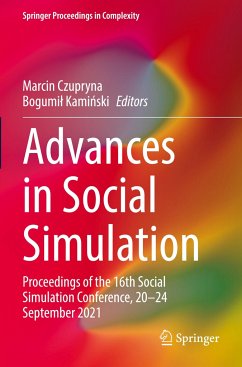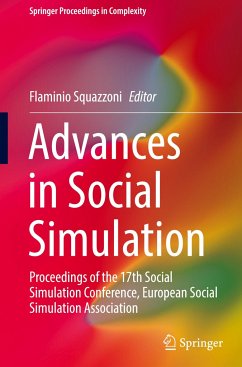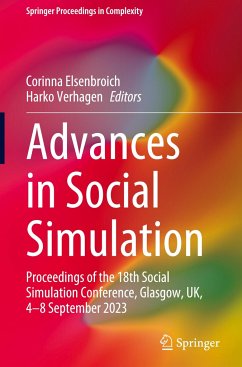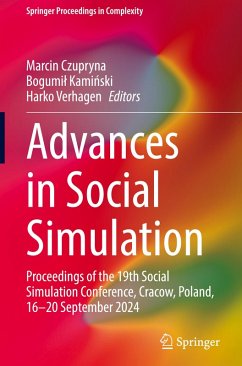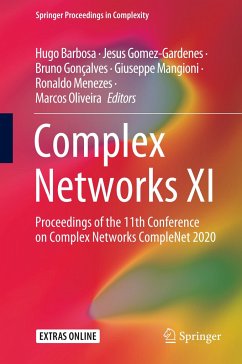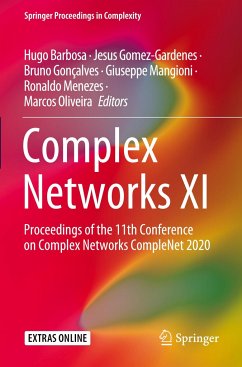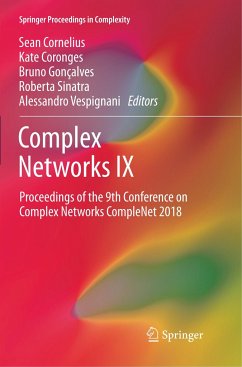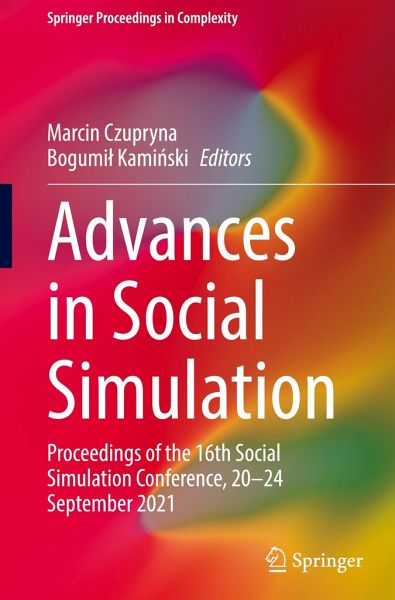
Advances in Social Simulation
Proceedings of the 16th Social Simulation Conference, 20-24 September 2021
Herausgegeben: Czupryna, Marcin; Kaminski, Bogumil

PAYBACK Punkte
83 °P sammeln!
This book covers the latest advances in applying agent-based modelling in social sciences. The Social Simulation Conference is the major global conference devoted to this topic. It is aimed at promoting social simulation and computational social science.This year's special theme is "Social Simulation geared towards Post-Pandemic times", focused not only on questions raised by the current pandemic but also on future challenges related to economic recovery, such as localization, globalization, inequality, sustainable growth and social changes induced by progressive digitalization, data availabil...
This book covers the latest advances in applying agent-based modelling in social sciences. The Social Simulation Conference is the major global conference devoted to this topic. It is aimed at promoting social simulation and computational social science.
This year's special theme is "Social Simulation geared towards Post-Pandemic times", focused not only on questions raised by the current pandemic but also on future challenges related to economic recovery, such as localization, globalization, inequality, sustainable growth and social changes induced by progressive digitalization, data availability and artificial intelligence.
The primary audience of this book are scholars and practitioners in computational social sciences including economics, business, sociology, politics, psychology and urban studies.
This year's special theme is "Social Simulation geared towards Post-Pandemic times", focused not only on questions raised by the current pandemic but also on future challenges related to economic recovery, such as localization, globalization, inequality, sustainable growth and social changes induced by progressive digitalization, data availability and artificial intelligence.
The primary audience of this book are scholars and practitioners in computational social sciences including economics, business, sociology, politics, psychology and urban studies.



